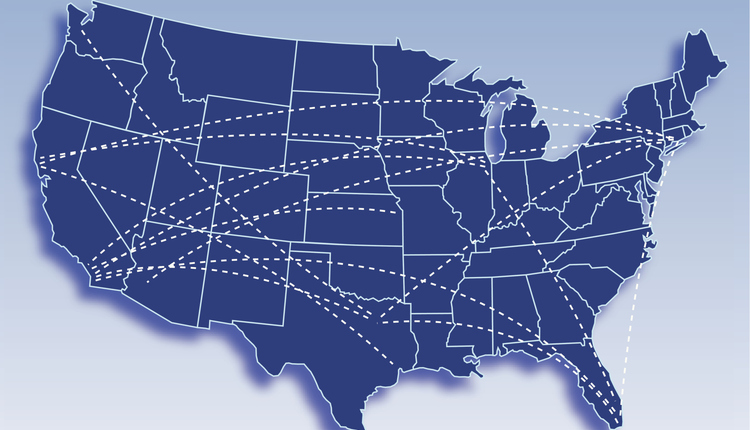Today, the U.S. Postal Service and the U.S. Postal Inspection Service join with federal, state and local government agencies and consumer protection organizations to announce the 12th annual National Consumer Protection Week (NCPW), March 7-13. This coordinated consumer education campaign highlights the importance of protecting privacy and steering clear of fraud and scams.
This year's theme -- Dollars & Sense: Rated "A" for All Ages -- encourages individuals to exercise good consumer sense at every stage of life -- from grade school to retirement.
"It's never too early or too late to become a more informed consumer," said Delores J. Killette, U.S. Postal Service vice president and Consumer Advocate. "This year, NCPW's goal is to educate consumers of all ages on how they can prevent becoming a victim of fraud and scams."
In recognition of NCPW 2010, the Postal Service and Postal Inspection Service are calling attention to free resources to help people protect their privacy and avoid identity theft and other fraud schemes. Consumers can visit www.deliveringtrust.com for free fraud education and prevention videos about identity theft, work-at-home scams, internet fraud, foreign lotteries, investment scams and more. Viewers can follow the Chief Postal Inspector and Postal Service Consumer Advocate as they walk through the top ten scams to watch for. The website also offers tips on recognizing scams and instructions on reporting scammers to the appropriate authorities.
In addition, the Postal Inspection Service offers the following tips for consumers to avoid becoming a victim of fraud:
- Know the warning signs: If it sounds too good to be true, it probably is. Watch out for offers that apply pressure to act "right away," guarantee success, promise unusually high returns, require an upfront investment, don't have the look of a real business or just don't feel right.
- Know the facts: Banks will never e-mail or call for account numbers. There are no legitimate jobs that involve re-shipping items or financial instruments from home. Foreign lotteries are illegal in the U.S. If in doubt, check the company out with the Better Business Bureau.
- Play it safe: Never click on a link inside an e-mail to visit a web site; instead, type the address in a web browser. Retain receipts, statements and packing slips, and review them for accuracy. Place outgoing mail in the secure blue collection boxes, or deposit it in collection slots on the inside of a local Post Office. Shred confidential documents instead of simply discarding them in the trash.
- Get involved: Point out "too good to be true" offers to kids and teach them to be skeptical. Take an active interest in the financial activities of aging parents, especially if they're facing an illness that could make them more vulnerable. Share information about scams with friends and family.
"We're out to stop fraud -- and you can help," said William R. Gilligan, Jr., Chief Postal Inspector. "Many fraudulent offers can be identified and prevented before they cause any damage. Together we can help protect our families and ourselves from these crimes."
This week across the country, participating Post Offices will host NCPW events to raise awareness of the most common fraudulent activities and what consumers can do to protect themselves. By shining a spotlight on issues and ideas that help individuals become better consumers of products, materials and services, the Postal Service and Postal Inspection Service hope to improve their knowledge of how to combat fraud.
Other national organizers of this year's NCPW include AARP, the Comptroller of the Currency, the Consumer Federation of America, the Council of Better Business Bureaus, the Federal Citizen's Information Center, the Federal Communications Commission, the Federal Deposit Insurance Corporation, the Federal Reserve Board, the Federal Trade Commission, the National Association of Attorneys General, the National Association of Consumer Agency Administrators, the National Consumers League and the Department of the Treasury.
For more information about NCPW, visit www.consumer.gov/ncpw.
The Postal Service receives no tax dollars for operating expenses, and relies on the sale of postage, products and services to fund its operations.
About the USPS
A self-supporting government enterprise, the U.S. Postal Service is the only delivery service that reaches every address in the nation, 150 million residences, businesses and Post Office Boxes. The Postal Service receives no tax dollars. With 36,000 retail locations and the most frequently visited website in the federal government, the Postal Service relies on the sale of postage, products and services to pay for operating expenses. Named the Most Trusted Government Agency five consecutive years and the third Most Trusted Business in the nation by the Ponemon Institute, the Postal Service has annual revenue of more than $68 billion and delivers nearly half the world's mail. If it were a private sector company, the U.S. Postal Service would rank 28th in the 2009 Fortune 500.
About the USPIS
The U.S. Postal Inspection Service is the federal law enforcement, security and crime prevention arm of the United States Postal Service that protects the U.S. Postal Service, secures the nation's mail system and ensures public trust in the mail. To learn more, visit http://postalinspectors.uspis.gov.
